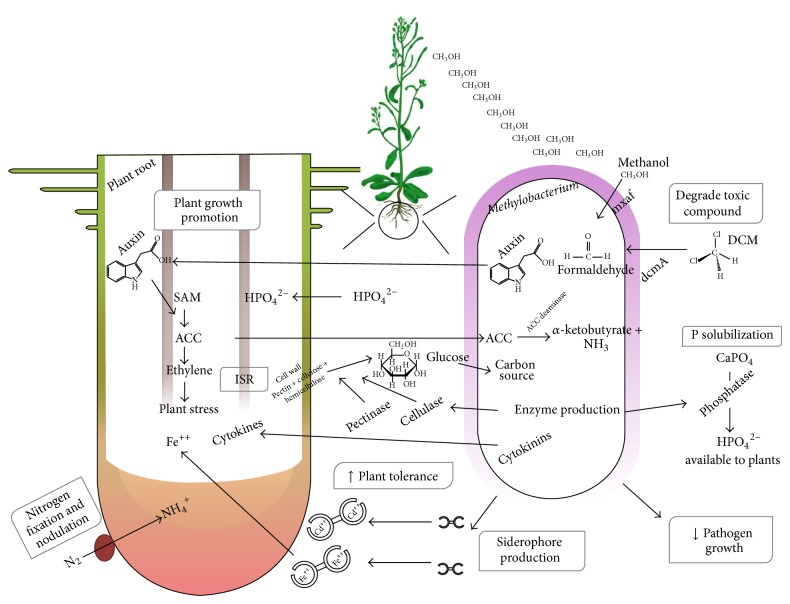Figure 2.
Molecular mechanisms possibly involved in plant colonization and plant growth promotion identified in Methylobacterium spp. genomes. The molecular communication during plant-Methylobacterium species interaction involves bacterial proteins and the secretion of phytohormones (auxin and cytokinin) that induce plant growth and decrease pathogen growth. Methylobacterium spp. are able to modulate ethylene levels using ACC (an ethylene precursor) as a source of nitrogen. The auxin and ethylene pathways are related, whereas ACC plant production is induced by bacterial auxin. Methylobacterium spp. can also solubilize phosphorus and produce siderophores that can chelate iron and other metals recognized and absorbed by the plant, increasing nutrient uptake (mainly Fe). The bioremediation of toxic organic compounds is also be observed during DCM degradation, as is the chelation of inorganic toxic compounds, increasing plant tolerance. Methylotrophic metabolism bacteria present an adaptive advantage due to methanol exudation by plant leaves. These molecular processes modulate Methylobacterium spp. plant colonization and plant defense.

